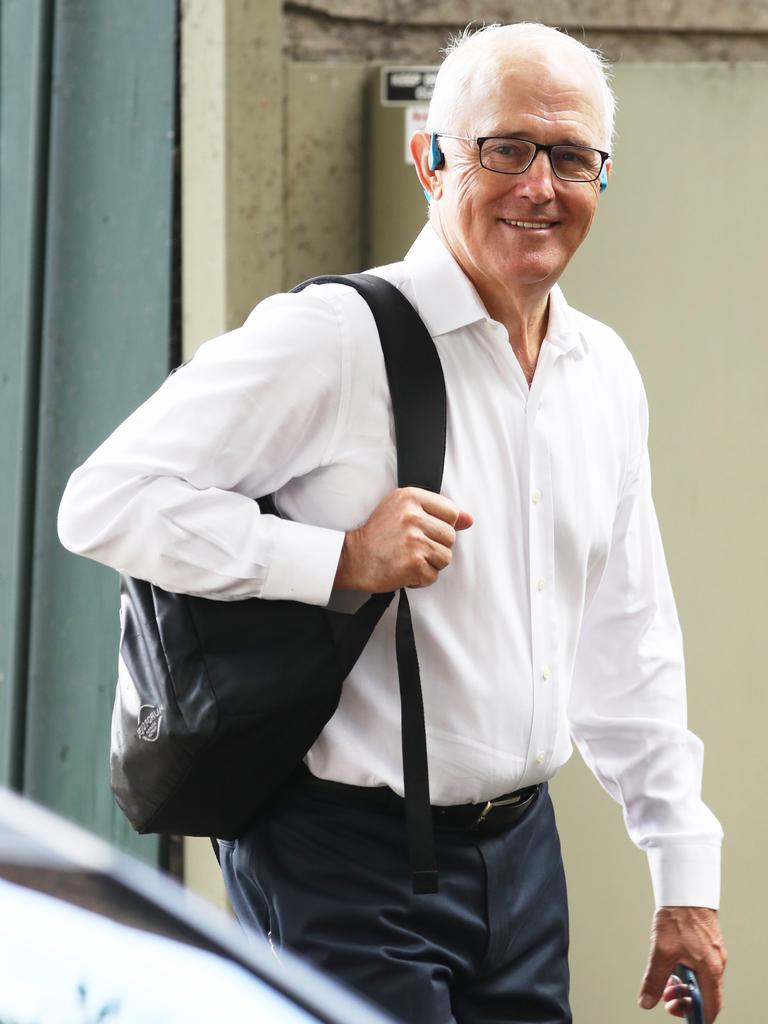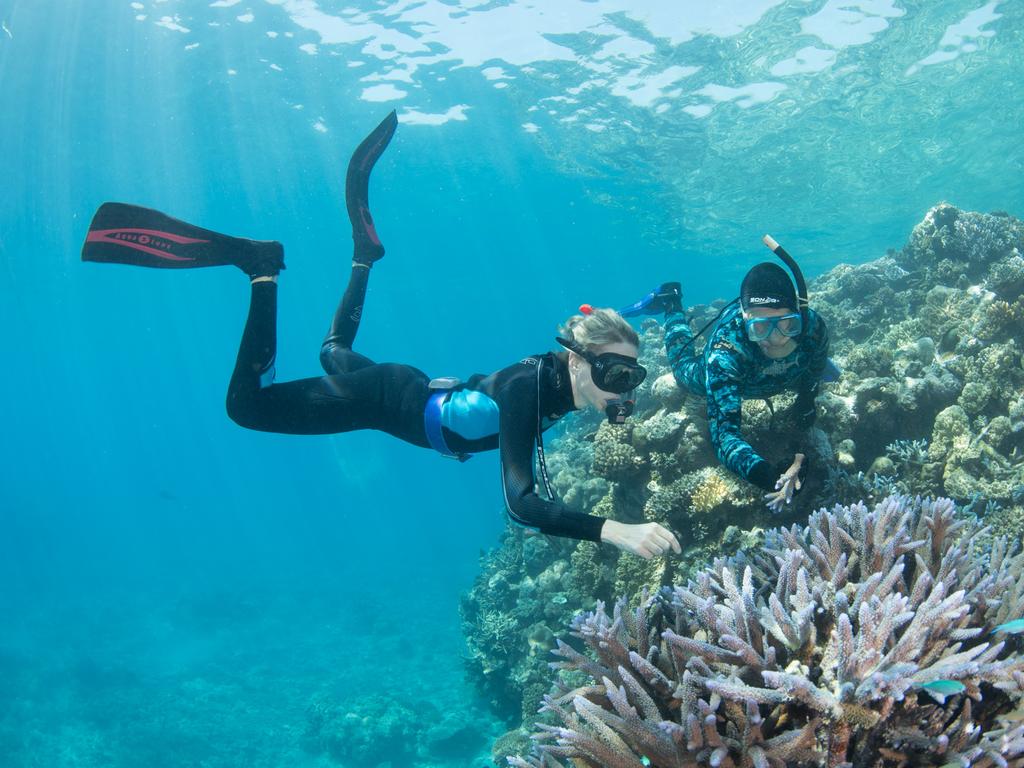Former PM Malcolm Turnbull’s savvy Great Barrier Reef investment
Malcolm Turnbull’s investment in an environmental company has increased in value after part of the company was sold. This is how it happened.
Business
Don't miss out on the headlines from Business. Followed categories will be added to My News.
Exclusive: Malcolm Turnbull’s investment in an environmental company that stops pollutants flowing into waters near the Great Barrier Reef has increased in value after part of the company was sold.
GreenCollar’s valuation increased to $800 million after advisory company KKR sold its 49 per cent stake to Canada’s Ontario Teachers’ Pension Plan.
Mr Turnbull’s company Turnbull and Partners purchased shares in Green Collar after he left politics
The former Prime Minister has declined to comment on how much his investment in GreenCollar had increased.
Mr Turnbull was asked if the Green Collar shares he bought for approximately $400,000 were now worth more than $3 million.

“I don’t comment on transactions.” Mr Turnbull said in a phone call while he was attending the World Hydropower Conference in Nusa Dua, Bali, this week.
GreenCollar provides environmental credits to prevent nitrogen and sediment run-off into waters near the world’s largest coral reef.
The Ontario Teachers’ Pension Plan reportedly paid $400 million for a 49 per cent stake in September this year.
KKR Advisory sold the stake to the pension fund after paying $100 million for the shares in 2020.
Mr Turnbull signed on as an adviser with KKR in May 2019, nine months after his resignation triggered a by-election in the seat of Wentworth in Sydney.
He said he was not involved in KKR’s decision to purchase shares in GreenCollar.
GreenCollar said in a statement that it “did not have any discussions with GreenCollar at all when he was Prime Minister, or prior to that period.”
“Mr Turnbull came into contact with GreenCollar when he became a passive investor in 2020, years after his term as Prime Minister had ended,” the company said.
“That investment took place in July of that year. He has never had any involvement in the management of GreenCollar.”
GreenCollar sells reef credits to major companies including Qantas and HSBC to offset their carbon emissions.
Greenpeace has warned that reef credits “aren’t enough alone to save the reef, and they won’t be enough to meet the 2025 water quality targets.”
GreenCollar had a partnership with the Great Barrier Reef Foundation charity, which was given a $443 million grant following a private meeting with Mr Turnbull when he was in Australia’s top job.

Great Barrier Reef Foundation chairman John Schubert told a Senate inquiry in 2018 that he had no idea that Mr Turnbull was going to offer him the $443.3 million grant at the meeting.
He said Mr Turnbull “took charge” of the meeting where he detailed the proposal.
The controversial deal did not go through a tender process.
An Australian National Audit Office report revealed the Foundation had spent almost $20 million in just over two years.
Great Barrier Reef Foundation managing director Anna Marsden said it had spent $1.5 million on reef credits.
“Through a competitive granting process $400,000 was invested to transition the Reef Credit Scheme to a fully independent governance structure and $1.1 million invested in Reef Credit generating projects which are reducing pollutants flowing to the Great Barrier Reef through the Mackay-Whitsunday, Lower Burdekin and Lower Herbert Water Quality programs,” Ms Marsden said.
“These projects are independently valued and audited by EcoMarkets Australia and have prevented 10.9 tonnes of nitrogen in one year from reaching the Reef.”
The foundation has raised $318 million from corporate sponsorships and donors since 2018 in addition to the government grant, Ms Marsden added.
Gemma Plesman, senior campaigner at Greenpeace Australia Pacific, said: “Voluntary market mechanisms, such as the reef credit scheme, are just a way to support better land management practices – but they aren’t enough alone to save the reef, and they won’t be enough to meet the 2025 water quality targets.
“Many businesses choose not to participate in voluntary Government and industry programs, which is why properly enforced regulation has to be part of the policy mix to meet the reef water quality targets.”
Ms Plesman said there were also concerns about the transparency of the carbon credits market.
How Green Collar reef credits work
■ Sediment and run-off from farming chemical nitrogen are a major problem for the Great Barrier Reef
■ Green Collar pays North Queensland farmers to build wetlands to stop run-off and change practices to use less nitrogen. Payments are spread over up to 25 years.
■ Companies, including Qantas and HSBC, pay Green Collar to offset their emissions
■ Annual audits check how much sediment and nitrogen run-off has been avoided
Source: Green Collar
More Coverage
Originally published as Former PM Malcolm Turnbull’s savvy Great Barrier Reef investment









